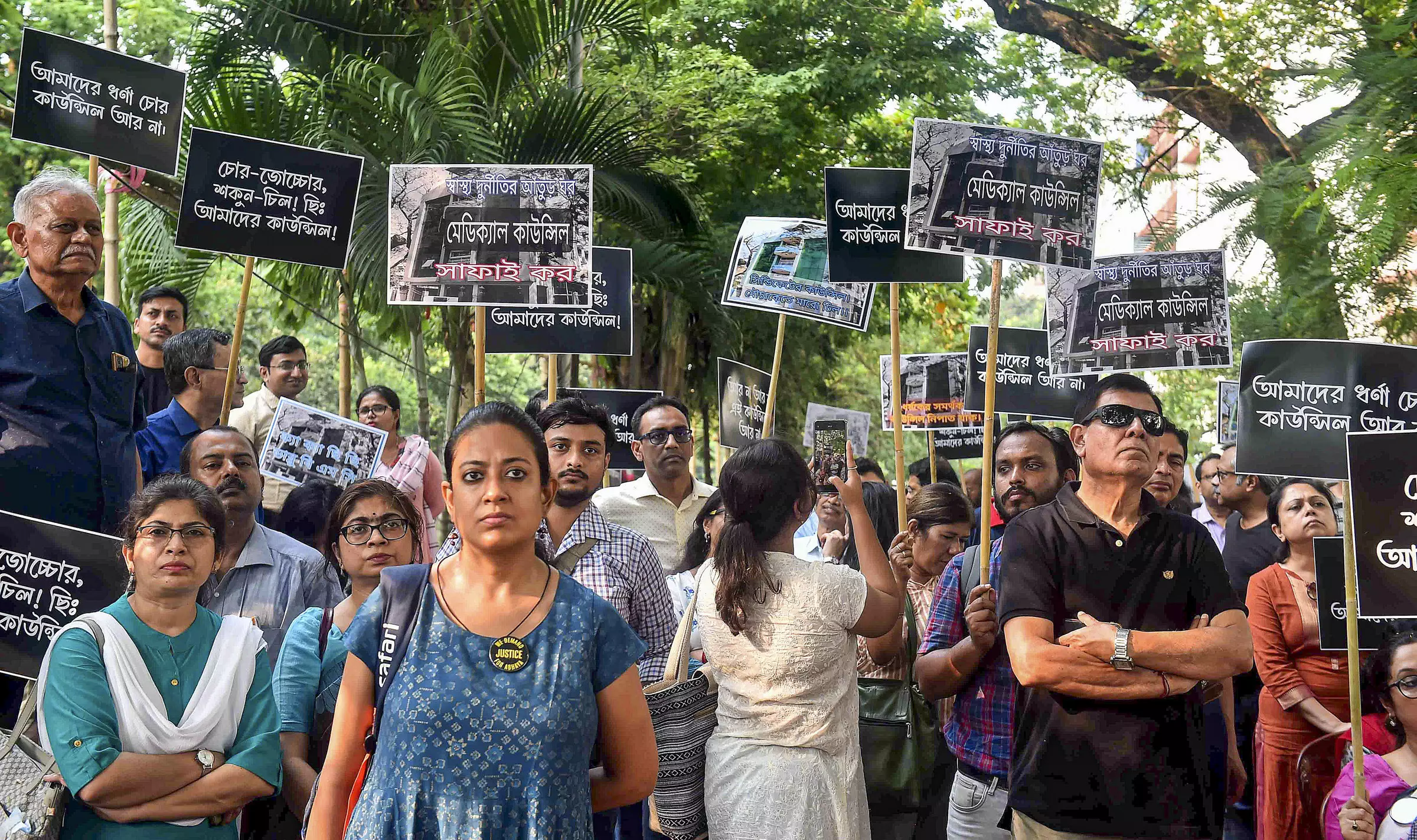DC Edit | Bengal govt must pave way for docs’ return to full duty

The decision of resident doctors in West Bengal protesting against the rape and murder of their colleague on the R.G. Kar Medical College and Hospital campus for the last 41 days to end their sit-in outside the state health department’s headquarters, partially suspend their stir and return to emergency services is welcome. However, the state government, too, must reciprocate by holding up its end of the bargain.
There is a dire need to fully restore the functioning of hospitals so that the people receive services they are in urgent need of.
Discussions held between chief minister Mamata Banerjee and agitating doctors this week had paved the way for partially ending the cease-work. As agreed, the government shunted out senior officials, including the directors of medical education and health services and the Kolkata city police commissioner. The partial return to duty by the doctors now follows the chief secretary issuing a promissory note to address their concerns with respect to security. They include deployment of more security personnel, including policewomen and female security personnel in every healthcare facility and the appointment of a former director-general of police to conduct security audits of all medical colleges and hospitals. In the background of the grisly incident, the government has also suggested setting up a centralised a panic call button alarm system which the healthcare professionals can access in case of an emergency. The government will appoint more doctors and other staff and will put in place a robust grievance redress system, as per the note.
The doctors, on their part, have made it clear that they will track the investigation into the rape-murder. They have good reason for so doing. Even the Supreme Court was upset upon seeing the report on the investigation submitted to it by the CBI. It is public knowledge that the hospital authorities destroyed evidence while the police looked the other way. It is shame that a crime that shocked the conscience of the nation required the intervention of the top court to assure a proper investigation based on what little proof that might still survive.
But now the trust deficit between government agencies and the public has become so deep, and justifiably, that even a CBI probe for what it is worth, monitored by the Supreme Court, does not inspire confidence anymore, least of all in the agitating doctors. It is the collective job of the police, judiciary and government to restore it.
The larger question of workplace security of healthcare professionals, and women, is open. The inhuman work conditions of junior resident doctors are another area of concern. It would take a substantial amount of money to build better security infrastructure while the working conditions can be improved only by increasing the number of post-graduate seats. All these will take time; meanwhile, the governments at the Centre and in the state must convince the doctors that they are seized of the matter. Actions must follow words, so that the doctors feel inspired to end their agitation completely and go back to the hospitals.
